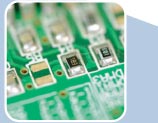 |
||||
  |
    |
|||
|
||||
|
Some of these batteries are really quite good - and some are barely half as good as others. This is a snapshot of a discharge curve over time under a constant load showing the voltage drop over time. The X axis represents the number of samples taken at 5 second intervals, the Y axis is the voltage out of the battery under a decent constant resistive load: |
||||
|
I've got a lot of work before the curves really mean anything - like "At what point is the battery no longer usable?" Obviously, when the voltage drops to zero, we are done. But to take two examples above, the light blue (Bat6) and the gold (Bat3) - which really lasts longer? If the camera stops working when the voltage drops below 7, then Bat6 is the winner. If it stops when the voltage drops below 6.25, then the gold is the winner. And it is pretty obvious that Bat5, while usable, gives half the life of other batteries. Which are Canon batteries, and which are the clones? I plan to go through all this in detail, probably more than most people want to read. But this first set of discharge curves alone is making me see I have one that needs to be retired for sure, three that are pretty darn good, and a few that are showing signs of age. I'm hoping the answer to the question "How do those eBay aftermarket Chinese manufactured generic BP-511 batteries compare to those expensive genuine Canon batteries?" pops out of this analysis as well. More to come! Like I said above, this is a pre-article so the bots can index the content. If you liked this or have questions, please shoot me an email and say hi! If you ask, I'll keep you informed of any updates - especially when the first set are published. I'm a real person, not some spam gathering email harvesting big corporate junk mail house.Send me an email to this address which I've setup to collect an interested people list: eosbatt at dascc dot com. Thanks! David Soussan
|
||||

